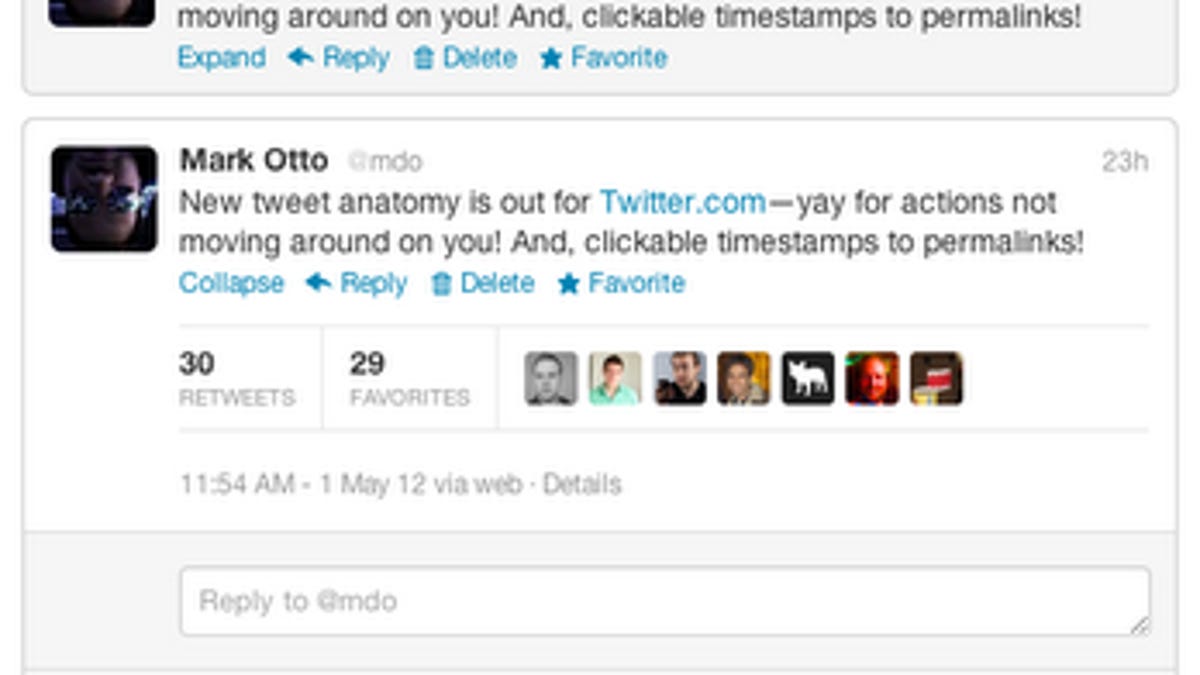The day in tweaks: Facebook, Twitter, and Google
Mouse-hover behaviors on Twitter, status updates on Facebook Messenger, and a whole mess of tweaks over at Google Search.

If you've noticed that things on your favorite big services feel a little different today, you're not imagining things. Facebook, Twitter, and Google have rolled out little changes to their main services.
Facebook added status details to its Mobile Messenger application. You can see if someone has read a message you've sent, if they're typing a reply, and what general region they are physically replying from (that one could be problematical). Apple iMessage and BlackBerry Messenger users are already accustomed to these features.
Twitter added a mouse-hover behavior to tweets on the Twitter.com site. Now when you hover over a tweet, interaction choices (Reply, Retweet, and Favorite) appear. They're not there otherwise, unless you click on the persistent "Expand" option that's on each tweet.
Twitter Director of Growth and International Othman Laraki wrote in a blog post that "We made these changes because this iteration showed a significant increase in engagement. We hope you like this change, which we think makes all of the possible ways to interact with a Tweet more clear. "
Over at Google, a blog post outlines 53 tweaks to the Google search engine this month, on top of February's Panda indexing changes. Most of the changes are subtle: The post says Google Search is now better at identifying the "freshness" of stories as well as the authority of content. The importance of the freshness signal is also dialed back for content that is seen as coming from low-quality sites.
Users are more likely to notice that results for breaking news stories get a larger presentation. Baseball fans also get better data in search results, as do people searching for info on, or results of, Formula One races.

